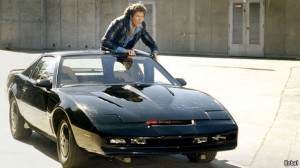
New Scientist is having a contest with the prize being a trip of a lifetime to the Arctic Circle and the bottom of the North Sea. I discovered after I wrote my entry that they only wanted less than 100 words. So here is what I originally wrote before I had to truncate it to something like Self Driving Cars FTW!
Self driving cars will be one of the biggest changes to society since, well, cars. Transportation is about 28% of all energy consumed in the US and cars are 60% of that. Self driving cars increase the efficiency of the use of cars in many ways.
Robotic cars won’t have a “lead foot” they can accelerate and decelerate optimally most of the time whereas human drivers are crazy on the accelerator and the brake. This will dramatically improve the overall efficiency of stop and go / around town driving.
Another dramatic optimization will be that automated vehicles will be able to operate safely as dynamic “trains” on highways. As cars flow onto a highway, they will all know where each other are going and can spontaneously form trains for the longer distances. Wind resistance is where most of your car’s energy consumption goes to once you go faster than around town speeds, putting cars into trains would be a huge savings. Eventually automated cars could even get on rails for long distance travel and then convert back to tires for local road travel. A steel wheel in contact with a steel rail reduces by 85-99% the amount of rolling friction than a rubber tire on asphalt/concrete.
There will be other significant indirect savings of energy due to changes in how we lay out cities, suburbs and highways. We can probably have fewer and smaller highways (or at least not have to widen highways as automated vehicles will be able to use less lanes and gaps. And if we can replace interstate highways with rails but still have personalized transportation with automated vehicles, we could eliminate most long distance highways.
We’ll also need significantly less cars to be manufactured each year as most people will not have to own a car. Transportation as a Service (TaaS) will emerge as the most popular mode. You just use your personal communicator to schedule or fetch the most available TaaS vehicle and it come picks you up. A huge amount of energy (let alone capital) would be saved by not building so many cars.
And that’s just for the generation of negawatts (the amount of energy we do NOT have to generate). The amount of personal and societal capital savings will be huge. To begin with, just think of how much capital is idle in all the parked cars at any instant. We might even get more exercise! Our cities and residential areas can be taken back from cars since we don’t need to leave a car at our destination anymore. And we’ll need to allocate much less of our space to roads and parking. Ecosystems can be restored since there won’t be as a huge swath of interstate highway all over. The list goes on and there are many other unexpected savings to be found.
I can’t wait!
